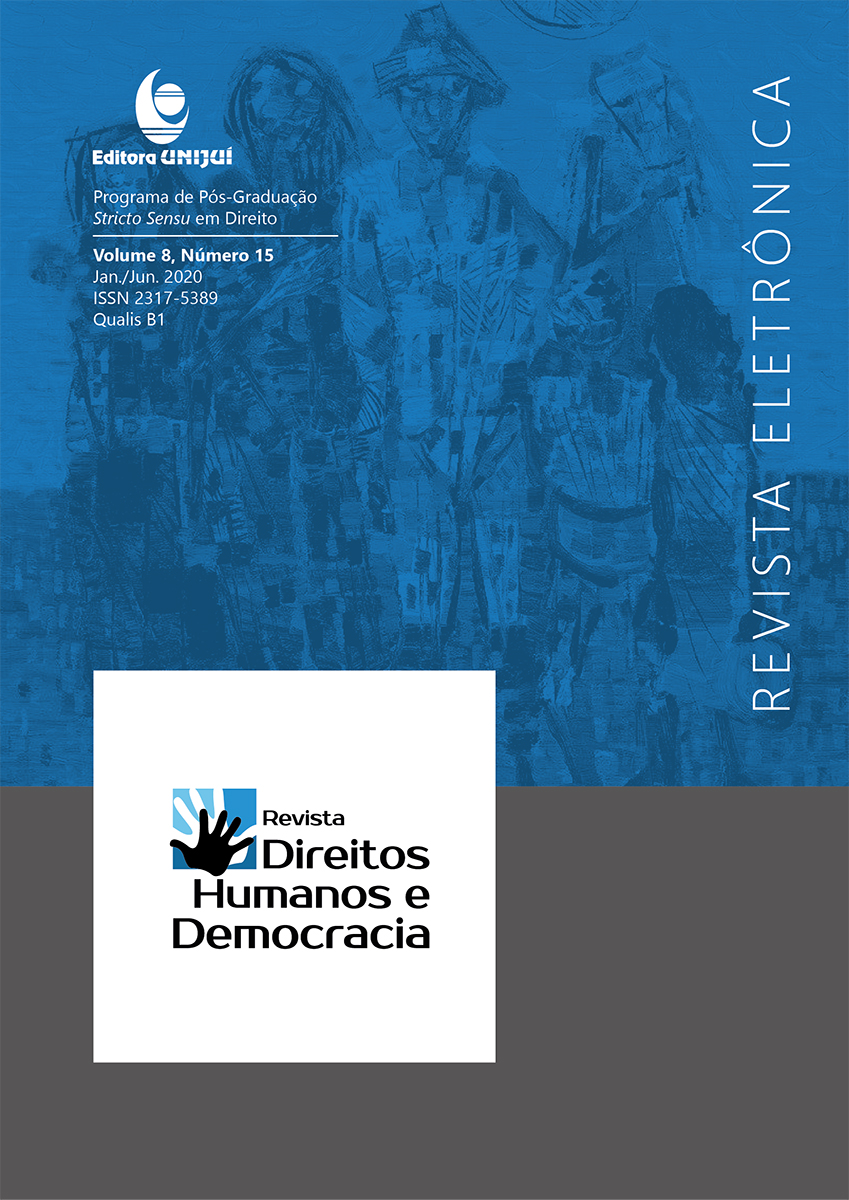O ENSINO FRATERNAL E HUMANISTA COMO PRESSUPOSTO DEMOCRÁTICO E A EFETIVA INTEGRAÇÃO DOS DIREITOS HUMANOS NA AGENDA EDUCACIONAL ATÉ 2030
DOI:
https://doi.org/10.21527/2317-5389.2020.15.12-23Keywords:
Ensino; Fraternal; Direitos Humanos, DemocraciaAbstract
As a result of the work of the World Education Forum held in 2015 and led by the United Nations Educational, Scientific and Cultural Organization, the Incheon Declaration and the action milestone until 2030 was published on the international scenario, towards an inclusive and equitable quality education and lifelong education for all. This Declaration, of significant importance at the international level, must have a necessary reflection in contemporary constitutional democracies, in order to definitively implement the content of human rights both objectively, as part of the subject matter in the curriculum, and in order to guide the teaching policy, starting with the introduction of important social justice measures. Indeed, education needs to be more comprehensive, free and inclusive, being the access to education a human right and, therefore, recognized as essential to free human development. The humanistic and fraternal content needs to be raised to political debate and not be relegated to the purely ethical field, although this area is also legally important. However, the very principle of fraternity brings with it an axiological force capable of objectivity and should not be overlooked, as an important component of the famous revolutionary principled triad, to modulate and shape freedom and equality. Likewise, instruction is a prerequisite for democratic effectiveness and legitimacy, since there cannot be a government of the people without education and, thus, the possibility of free expression of will. Throughout this article, we will seek to address such aspects, in order to defend the inclusion of human rights in the educational agenda, constituting a fraternal and humanistic education system to be implemented until 2030.
Downloads
Published
How to Cite
Issue
Section
License
By publishing in the Revista Direitos Humanos e Democracia, authors agree to the following terms:
Articles are licensed under the Creative Commons Atribuição 4.0 Internacional (CC BY 4.0), which allows:
Share — copy and redistribute the material in any medium or format;
Adapt — remix, transform, and build upon the material for any purpose, including commercial use.
These permissions are irrevocable, provided the following terms are respected:
Attribution — authors must be properly credited, with a link to the license and indication of any modifications made;
No additional restrictions — no legal or technological measures may be applied that restrict the use permitted by the license.
Notices:
The license does not apply to elements in the public domain or covered by legal exceptions.
The license does not grant all rights required for specific uses (e.g., image rights, privacy, or moral rights).
The journal is not responsible for opinions expressed in the articles, which remain the sole responsibility of the authors. The Editor, with the support of the Editorial Committee, reserves the right to suggest or request modifications when necessary.
Only original scientific articles presenting research results of interest, not previously published or simultaneously submitted to another journal with the same purpose, will be accepted.
References to trademarks or specific products are intended solely for identification purposes and do not imply any promotional endorsement by the authors or the journal.
License Agreement: Authors retain copyright over their articles and grant the Revista Direitos Humanos e Democracia the right of first publication.













